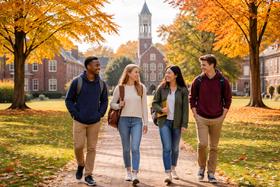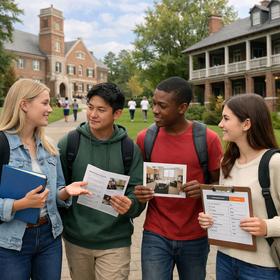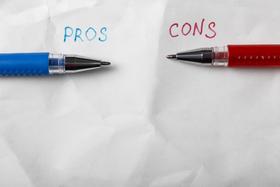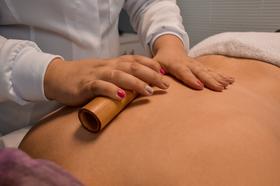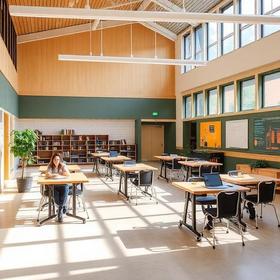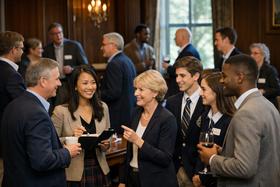In this article, we examine five more remarkable private schools established with a vision supported by munificence. The Phillips Family, which established the Phillips Academies at Exeter and Andover in the 18th century, had the purest motives in mind. They understood that a well-educated citizenry would ensure the future of the very young United States of America.
"Above all, it is expected that the attention of instructors to the disposition of the minds and morals of the youth under their charge will exceed every other care, well considering that though goodness without knowledge is weak and feeble, yet knowledge without goodness is dangerous, and that both united form the noblest character, and lay the surest foundation of usefulness to mankind." Echols, Edward (1970). The Phillips Exeter Academy, A Pictorial History" Exeter Press
What was taught in these early schools? Remember that there were no schools in America when the colonists arrived. As a result, the early settlers did not have to follow traditions or laws governing their children's education. Since freedom from religious oppression was why so many colonists had left England, they ensured their religious teachings were the core of their academic curricula. Also on the list of subjects were useful skills such as simple arithmetic and spelling. Schools ran year-round.
Milton Hershey and Stephen Girard founded their schools at a different time in our nation's maturation. The industrial revolution had worked its wonders in the 19th century. But it has also created some social issues that continue to bedevil us today. These prosperous businessmen felt strongly that the less fortunate members deserved the same opportunity for an education as those who were better off. Thousands of miles to the west, in 1887, the estate of a Hawaiian princess, Bernice Pauahi Bishop, established a school that serves the Indigenous children of those far-off Pacific islands. Mrs. Bishop was the largest landowner in Hawaii at the time of her death. She bequeathed a portion of her estate to establish the Kamehameha Schools. The school's website states that the "Kamehameha Schools’ mission is to fulfill Pauahi’s desire to create educational opportunities in perpetuity to improve the capability and well-being of people of Hawaiian ancestry."
The schools these visionary benefactors started decades ago continue to serve young people today. And they do it very well indeed.
Samuel Phillips, Jr. founded Phillips Academy Andover in 1778. The school was an all-boys school until 1973 when Andover and Abbott Academy, a girls' school, merged. The school has produced many distinguished graduates over the past two centuries. It is a big school with a student population of over 1,100. The school's curriculum includes instruction in thirty AP courses. The facilities must be seen and experienced as they rival and exceed anything on most college campuses. Admissions at Andover are extremely competitive. If your child is admitted, don't fret about being unable to pay for her education. Andover has one of the most generous financial aid programs out there.
Samuel Phillips's uncle, Dr. John Phillips, established Phillips Academy Exeter in 1781. According to the Exeter website, Dr. Phillips sought "to link goodness with knowledge, developing the consciences and training the minds of students so that they may usefully serve society." These are beautiful motives that ring true in the 21st century. Like its sibling and rival school, Andover, Phillips Exeter is a large school with over 1,000 students. Exeter was a boys' school until 1970. Like Andover, the breadth and depth of its academic offerings are remarkable. Superb facilities, a 600-acre campus, and a $750 million endowment make Exeter extremely competitive. But if your child can get in, the financial aid program is very generous.
Is Exeter a better school than Andover? Is Andover better than Exeter? The rivalry between these two schools is the stuff of history and legends. Let's agree that Exeter and Andover represent the gold standard in American college preparatory education. If your child gets into either school, kudos all around!
Unlike the Phillips Academies, Milton Hershey School, founded by Milton Hershey, offers grades PK-12. Located in Hershey, Pennsylvania, the school was founded in 1909 with a few students from poor families. It now serves over 1,800 students and has an approximately $6 billion endowment.
The school's website says it all:
"Milton Hershey School is a cost-free, private, coeducational home and school for children from families of low income, limited resources, and social need."
Milton S. Hershey and his wife Catherine established a trust that funds the school. Milton Hershey School offers a positive, structured home life year-round and an excellent pre-kindergarten through 12th-grade education.
"Our vision focuses on building character and providing children with the skills necessary to be successful in all aspects of life."
Can you imagine a free private school on 43 prime acres in downtown Philadelphia? Yes, it's true. Born in France in the 18th century, Stephen Girard was a shipping magnate first and a private banker second. He established Girard College in 1833, and his fortune was valued at $7.5 million at his death. That's $201 million in 2011 dollars. The purpose of Girard College was to provide an education for children from poor families. Currently, the school serves approximately 550 children in grades 1 through 12.
The Kamehameha Schools were established in 1887 by Bernice Pauahi Bishop, the daughter of the last King of Hawaii. She sought to provide a sound education for the indigenous children of Hawaii. The school serves 6,500 students in grades PK-12 on 3 campuses in Hawaii. Kamehameha's endowment is the largest secondary school endowment in the United States, with a value of approximately $12 billion in 2017.
5 Founders and Their Boarding Schools and 5 More Schools and Their Founders explore other schools established by generous benefactors.
Questions? Contact us on Facebook. @boardingschoolreview


